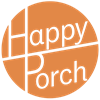Creating An Appetite For Knowledge Sharing
In most jobs you have to keep learning to stay relevant. And when you work a lot with digital technology like us, it is very important to keep up-to-date with the latest developments and technologies in order to provide the best possible solutions to our clients.
But other than the personal learning and development of your skills through following courses and trying out new things, there is also a form of implicit learning that you might not always be aware of.
In most workplaces you would be doing your work surrounded by your colleagues. And when some of your colleagues start talking about something awesome they have just created, you might go and have a look to see what it is all about. Or you might just hear it and not act on it at that time, but the next time you come across a similar problem you will know who to go and speak to.
Or while making a coffee or having lunch with your colleagues you might discuss some interesting side projects, hobbies or volunteering roles you might do during your spare time. Not only does that mean you learn more about the passions of your colleagues, but you may also learn about subjects you would otherwise have not come across.
These kind of occasions where knowledge is shared between people in the team do happen more naturally if you’re all based in the same office.
But what about remote teams? How would we at HappyPorch, a fully remote company, be able to fit this kind of learning into our team culture?
That is a question that was raised at a team dinner during our last meetup in Porto. And there we decided to start exploring what options were available for knowledge sharing within our team.
Research
First we had a look at how other companies are doing this already.
One popular approach is the brown bag meeting:
“A brown bag meeting, or a brown bag seminar, is an informal meeting that occurs around lunchtime. This type of meeting is referred to as a brown bag meeting because participants typically bring their lunches, which are often packed in brown paper bags. The meeting usually occurs in office training or conference rooms.”
The informal part is definitely right, but other than that, nothing in this definition applies to us - it’s hard to plan lunch when the team is based on several continents and timezones 😉
But it did provide us with a starting point to find out more about the concept, and we felt that a similar virtual meeting could work for us.
Some useful insights we came across were from Unicef who say it’s important to have time allocated in your session for a Q&A at the end. And they sometimes invite visitors or external people to give a talk as well.
Another interesting resource was a blog post by Andrei Gridnev who shared his experiences of organising lunch-and-learn sessions. A key point from his post was that the optimal session length should be around 25-30 minutes: enough time to learn something new, but not overload people with too much information.
Our Setup
After reading through all the resources we found during the research, it was time to come up with our own concept that would work for us.
Since the majority of our team and clients are based around European time zones, it made sense to stick to midday UK time. And because that is lunchtime for most of us, we decided to call our knowledge share sessions Food 4 Thought (F4T for short).
The basic idea can be summed up as:
- Let's get together to showcase or talk about something interesting over an informal lunch call.
- We aim to schedule a F4T session once every two weeks.
- They will be held on different days of the week, so people who only work part of the week are able to attend some of them.
- The sessions will always start at 12:00 (UK time), so we're not conflicting with other client calls planned later on.
- Each session will be 30 minutes long (so we're not taking up your full lunch break) with 20 minutes reserved for the speaker and the last 10 minutes for Q&A.
- Sessions are hosted on Zoom and each session will be recorded and shared in our team Slack channel afterwards, so people who missed a session can catch up later.
- Participating in this is not mandatory (both on the presenting and listening side), but it would be nicer if someone wasn't presenting to an empty Zoom room 🙂
To give people an idea of what kind of topics they could present on, we came up with this list of suggestions:
- Show us something interesting you have worked on in one of your projects and you feel could be useful for others to know about.
- If you have been playing around with some interesting new technology (either during work or spare time) and want to share with us why it's so great.
- Been to a conference or read an interesting book? Why not share with us some of the key things you have learned from it.
- Staying healthy at work is important as well, so maybe you want to share with us some tips around team/personal wellbeing.
- As part of our journey to self management you might want to introduce the rest of the team to a new concept or idea for this.
- Or maybe give the rest of the team an update about the ongoing pro-bono projects.
We even created a Trello board for people to keep track of proposed and requested talks:

It allows us to keep track of the various topics and keep the links to the recordings of each session in the Archive list, where people can easily find them.
The colour-coded tags on the cards are there to help us categorise the topics. Some of the categories we have are:
- Technology Showcase
- Wellbeing
- Self Management
- Social Values
- Reviews
It helps us plan the sessions to make sure we don’t have a series of similarly themed topics in a row, which might put off people of attending. Variety is a good thing for your brain as well, not just your stomach.
How Has It Been Going?
We started with the first F4T session last November and have been doing it every two weeks since then, so we have just passed our 10th session!
There has been a steady stream of topic proposals, and a real diverse mix of both topics and speakers (nearly everyone in the team has presented or proposed a session so far). Talks have ranged from the technical (how to run scheduled tasks on an Umbraco site) to the non-technical (how to recognise domestic abuse and how to help).
The format outlined above has worked really well for us. The session length focuses the speaker to be concise in presenting their topic, and there have always been interested questions at the end of a session.
Also, recording the talks has been really useful as well, since various people who missed a session have gone to watch them back.
During the next few months we would like to share the more interesting topics we have been learning about with you in a series of blog posts. So keep your eyes peeled on our blog and social media accounts for some interesting food for your thoughts!

